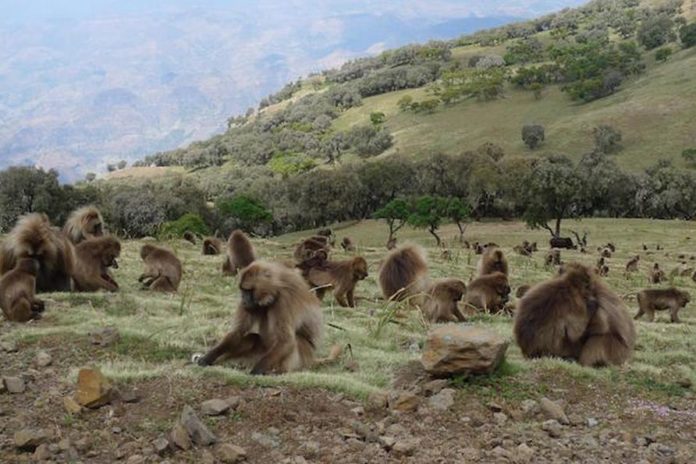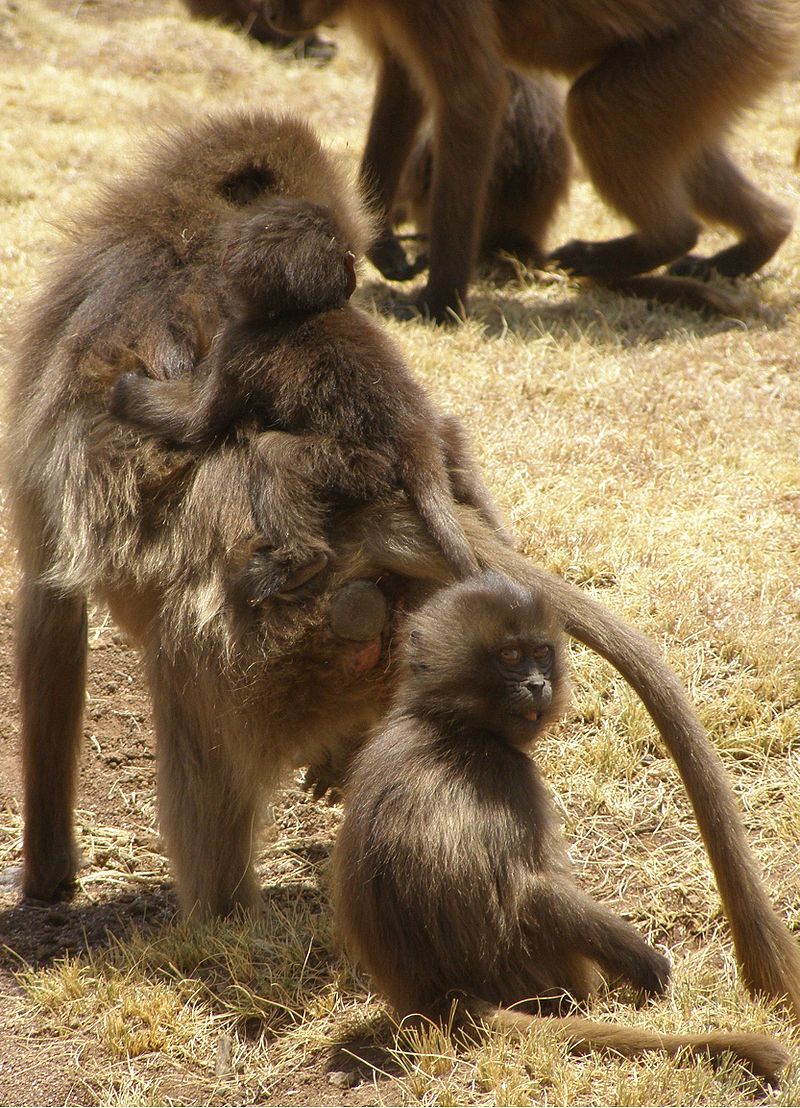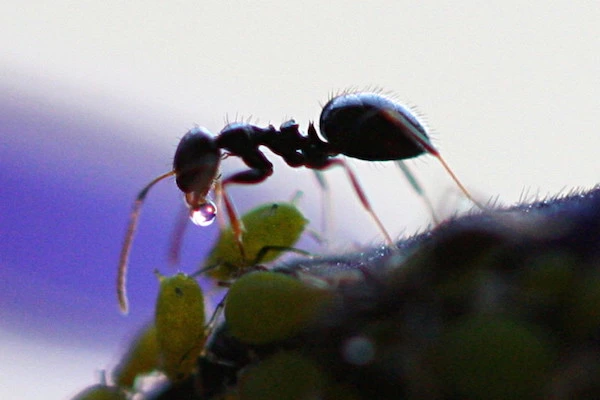
In eastern Africa, scientists have collected evidence that suggest Ethiopian gelada monkeys are domesticating wild wolves. The paper was published in Journal of Mammalogy, Oxford University Press.
Herds of the gelada– a type of baboon, have been seen permitting the carnivores to roam freely among them. The Ethiopian wolves– a critically endangered species only found in the mountains of Ethiopia, walk through the center of these gelada herds, ignoring the potential meal of baby geladas.

Researchers have said these behaviors are likely similar to those scientist have theorized about the progressive relationship between man and dog. Dogs were domesticated between 40,000 and 11,000 years ago; some scientists believe this change in behavior occurred when wolves followed human groups and discovered that they could take advantage of large carcasses left behind from human hunts.
The discovery was made by primatologist Vivek Venkataraman, at Dartmouth College in New Hampshire, whist doing fieldwork at Guassa plateau in the highlands of north-central Ethiopia.
Domestication– often defined as an animals loss of aggression, is seen all throughout nature. The domestication seen within some species of ants is one of the lesser known examples. The domestication in this case refers to the behavioral change the ants have exhibited with aphids (tine green insects commonly referred to as “plant lice” or “greenflies”)

The aphids produce a sticky, sweet substance call honeydew, that ants love. In order to get to this sweet substance the ants commonly killed the aphids; however, over time, the ants learnt that they could extract the honeydew by simply stroking the aphids on the back.
This has ultimately led the ants to keep and protect the aphids, essentially farming them. This new relationship benefits both of the species; the ants receive easy access to the honeydew and the aphids, in return, are protected from other predators such as birds.
Currently, it is not clear how the relationship between the geladas and the Ethiopian wolves developed. It is likely that the geladas in some way aid the wolves hunt for rodents. When observed, the wolves were seen to mostly enter the gelada groups during the middle of the day, when rodents are most active.
Venkataraman therefore decided to calculate whether the geladas presence made the wolves hunt more successfully. To do this Venkataraman and his colleagues followed individual wolves for 17 days and recorded each hunting attempt. It was discovered that when the wolves were in a gelada herd the wolves were 67 percent successful, but when alone, they were only 25 percent successful.
The reason for this increase in success is not yet clear, it could be that the grazing geladas flush the rodents out of their burrows. Another possibility is that the monkeys, which are roughly the same size and color as the wolves, are distracting the rodents, ultimately making it easier for the wolves to strike.
However, as the wolves are unlikely to fend off predators such as leopards or feral dogs, there is no clear sign that the geladas are gaining anything from this relationship. Due to this, scientist doubt that the domesticated relationship will develop further.
Get Your Anonymous T-Shirt / Sweatshirt / Hoodie / Tanktop, Smartphone or Tablet Cover or Mug In Our Spreadshirt Shop!
You want to support Anonymous Independent & Investigative News? Please, follow us on Twitter: Follow @AnonymousNewsHQ
This Article (Scientists Have Discovered A Domesticated Relationship Between Monkeys and Wolves) is free and open source. You have permission to republish this article under a Creative Commons license with attribution to the author and AnonHQ.com.





The rodents carry other vermin, and disease. For the wolves to remove the rodents directly benefits the monkeys.